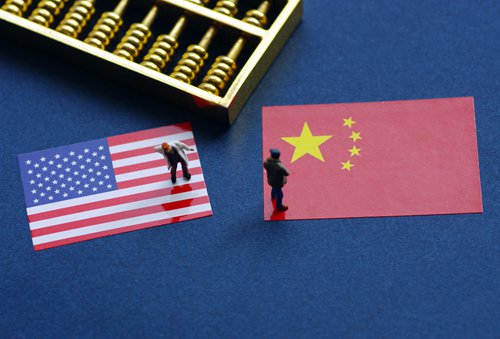HOME >> OPINION
US moves like a witch hunt for China
By Song Guoyou Source:Global Times Published: 2019/5/29 17:53:40

Photo: VCG
China-US ties have recently been troubled. This time Washington has introduced a host of damaging policies in fields such as technology and education, which adversely affect bilateral relations. The latest example is the expulsion of two Chinese neuroscientists from Emory University in Atlanta and the deportation of four postdoctoral students working in their lab from the US.
US President Donald Trump's administration thinks cooperating with China is like "funding the enemy" in the academic domain, which will certainly impair US national interests and needs to be prevented. In this context, there are different voices in the US education world.
Peter Salovey, president of Yale University, published an open letter on May 23, affirming the "steadfast commitment" to international students and academics in his university. In the letter, he said "tensions in United States-China relations and increased scrutiny of academic exchanges have added to a sense of unease among many international students and scholars here at Yale and at universities across the country." He urged US federal agencies to "clarify concerns they have about international academic exchanges."
Obviously, the content of the letter reveals some of the US intelligentsia has realized that it is normal that Beijing and Washington have conflicts in many fields. However, the US government's recent moves toward China in areas like technology and education can be seen as the abuse of government power. The purported threat to US national security can be seen as a pretext to undermine China.
Up to now, the US administration does not have enough evidence against China. The US considers itself to be a country under the rule of law that goes by evidence. Taking decisions in the absence of proof is extreme political thinking that goes against legal norms.
What the Trump administration has done shows its anxiety about China. Pushed emotively to win China-US competition, the US is using state apparatus to treat China on the basis of ideology instead of facts.
In terms of ideology, communication with China in domains like technology and education should be in line with not only US interests, but also US values.
Such US moves do not only damage people-to-people exchanges and impede the normal exchanges between the two countries, but also have profound negative impact on the US. When Washington resorted to McCarthyism during the Cold War, its education and foreign relations suffered severely. Currently, the US government cracking down on China without any evidence will deepen the Chinese people's antipathy and raise questions about the Trump administration, stoking disgust against the White House.
Although Beijing has clashed with Washington to safeguard its interests in the arena of trade, China has been maintaining social exchanges and encouraging communication at all levels between the two societies, including promoting youth, think tanks and other exchanges. China is aware that to avoid strategic confrontation, benign interactions at the national level in the future need solid support of society. However, some politicians in Washington shake the public foundation in the interest of their own political ends.
Trump described Russiagate as "a total political witch hunt" of which he is a victim. Currently, his administration's bigoted moves toward China in economy and trade, technology and people-to-people exchanges are exactly a "witch hunt" against China. The US government is the perpetrator, while China is the victim.
The author is deputy director of the Center for American Studies, Fudan University. opinion@globaltimes.com.cn
Posted in: VIEWPOINT